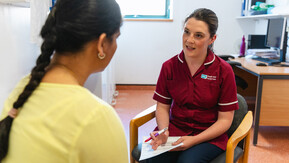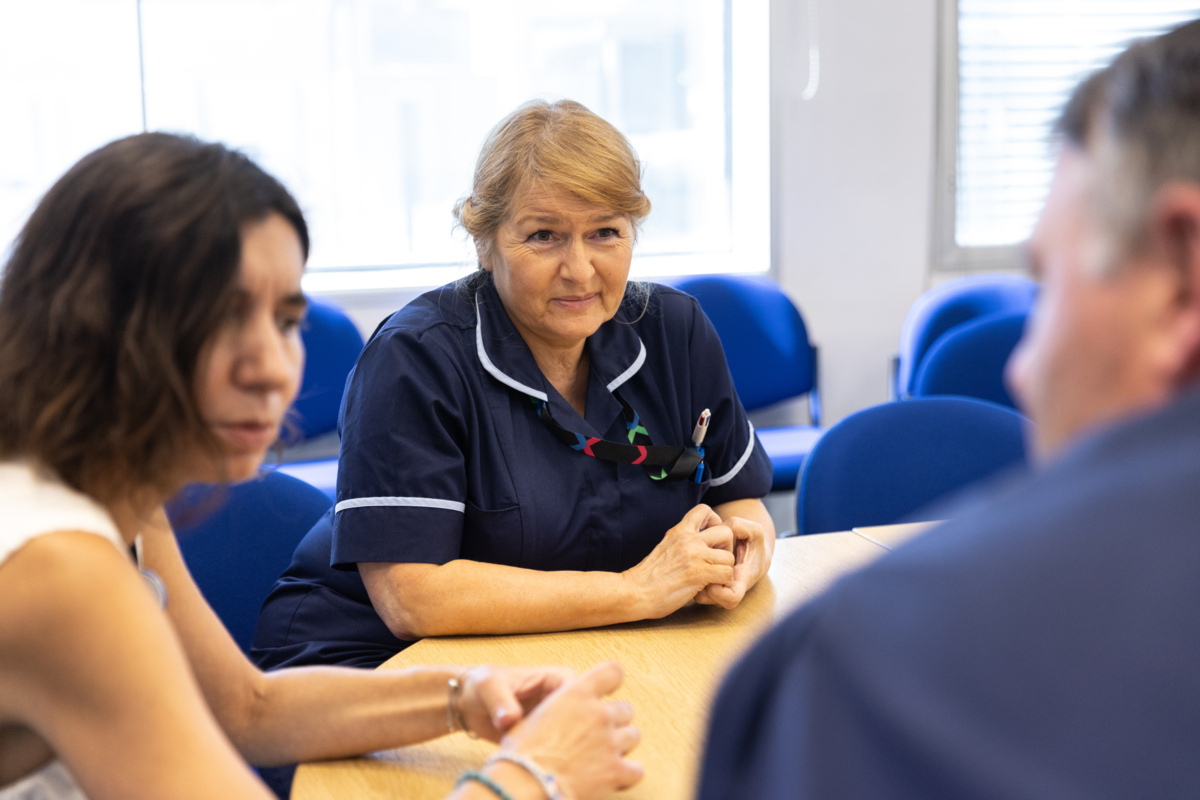
Spirituality and cancer guide for healthcare professionals
What is spirituality?
Spirituality is a personal sense of connection to something greater than oneself, which may or may not involve religion. It can be expressed through practices like music, prayer, meditation, or cultural rituals, and support can come from communities, loved ones, or spiritual leaders.
Why spirituality may be important to your patients
Spirituality may be important to patients affected by cancer as it often provides comfort, strength and meaning during a difficult time. Having a spiritual practice may help patients with their emotional and mental well-being.
Cancer care and spirituality
It's important to recognise the spiritual needs of a patient as it's vital to patient centred care.
Ways you can support your patients' spiritual needs
Make space and time to talk about their spiritual needs
Spirituality is deeply personal and can be expressed in many different ways. People living with cancer may not always realise that it's okay to discuss spiritual concerns with their healthcare team. This hesitation can stem from various reasons, such as not wanting to take up a professional’s time. However, creating open lines of communication can help individuals feel more at ease.
One way to initiate these important conversations is through a Holistic Needs Assessment. This tool can highlight a person's concerns and help explore how their cancer experience may have impacted their faith or beliefs. By understanding these aspects, healthcare professionals can better support patients and, where appropriate, incorporate their spiritual needs into the overall care plan.
What to do if you are unsure how to support your patients spiritual needs
Engaging in conversations about a patient's spiritual needs should be approached with respect, empathy, and understanding. A holistic needs assessment can serve as a valuable starting point, helping to explore what truly matters to the individual.
Throughout these discussions, it's important to be mindful of your own body language - ensure it is open, welcoming, and that you're actively listening. Equally, pay attention to the patient's nonverbal cues: do they appear at ease, or do they seem uncomfortable?
If the patient seems hesitant or unwilling to engage in the conversation, consider gently signposting them to more specialised support, such as a spiritual care team or chaplain.
It is okay to not be an expert or knowledgeable of the person's spirituality, faith or religion. Don't be afraid to ask questions, as long as they're respectful. Or to get support from your local chaplaincy services (if you work in a hospital).
Signpost to support for your patients
Healthcare professionals can work to help connect patients with where they might find support. These can include:
- Support groups which may be able to address their needs
- Chaplains or a spiritual care team
- Alternative therapies such as yoga or mediation, arts or music therapies.
Useful resources for healthcare professionals
Conversation prompts to explore spiritual needs with patients
- Do you have any personal spiritual beliefs or practices?
- what are they?
- do they help you?
- is there anything we can do to support them?
- How do your beliefs affect the care you would like to receive?
- What is there in your life that gives you internal support?
- Is your current situation affecting your ability to do things that usually help you spiritually?
- Are you part of a spiritual, faith based or religious community – is this supportive to you?
Resources
- Enhancing Nurses' and Midwives' Competence in Providing Spiritual Care through Innovative Education and Compassionate Care (EPICC) Network
- Information about spirituality by Tees, Esk and Wear Valleys NHS Foundation Trust
- Managing conversations around spirituality by Revd Susan van Beveren, head of pastoral and spiritual support at Kingston Hospital NHS Foundation Trust and Hounslow and Richmond Community Healthcare NHS Trust
- The National Spirituality and Mental Health Forum
- Marie Curie - providing spiritual care
End of Life resources
Grief support guide by National Bereavement Alliance
Resources for your patients
Online training
- Spirituality and spiritual care by University of South Wales
- Spiritual care course by NHS England
- SAGE & THYME training - an online workshop on how to listen and respond in a way which empowers the patient.
About our information
This information has been written and edited by Macmillan's Digital Content team. It has been reviewed by Macmillan staff from different religious and spiritual backgrounds, and Dr Fatima Javed, Cancer Support Services Project Manager at the Green Lane Masjid, and Macmillan's Cancer Information Development team.
Learn more about how we produce our information and about our Digital Content Editors.
Stories And Media
-
Blogs 04 Jun 2025A practical guide for healthcare professionals on understanding and supporting the diverse spiritual needs of cancer patients to enhance holistic, patient-centred care.
-
Blogs 25 Mar 2024In the final instalment of this series, Chief Nursing Officer Dr Claire Taylor MBE and Macmillan Lead Cancer Nurse Fungi Motsi, discuss the challenges and experiences for women in leadership in...




